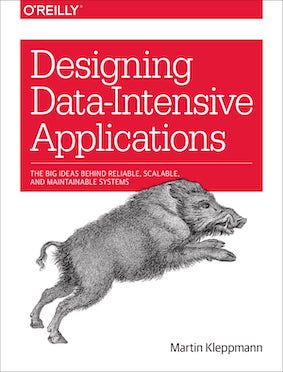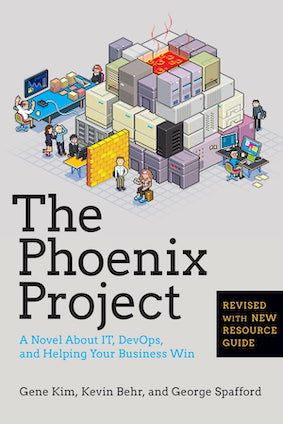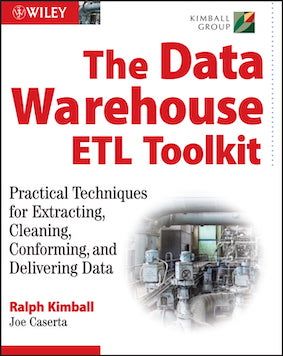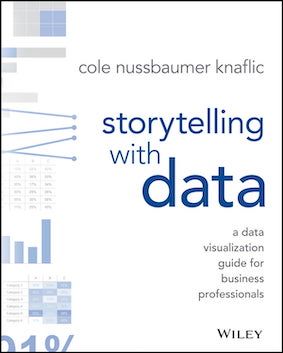Top 5 most influential books for a Data Engineer

As a data engineer with almost 10 years of experience in the field, I have had the privilege of witnessing the evolution of data engineering and the significant impact it has on modern organizations.
Throughout my career, I have come across a multitude of resources, but there are five books that I recommend to anyone aspiring to excel in the world of data engineering. Whether you are just starting out or you are looking for materials to deepen your existing knowledge, reading these books will provide what you are looking for.
These books have played a pivotal role in shaping my career and continue to be influential in the field. Let's delve into each of them.
Fundamentals of Data Engineering
Joe Reis, Matt Housley

Fundamentals of Data Engineering provides a comprehensive introduction to the foundational concepts, techniques, and tools needed for managing and processing data at scale. The book covers the end-to-end process of constructing data pipelines, building infrastructure, and governing data in production environments.
This book is a recent addition to the literature, having been published in 2022. It effectively addressed a previously unmet need and rapidly emerged as a cornerstone in the field.
Summary
It starts with an overview of the roles and responsibilities of data engineers as well as key data architecture patterns like batch processing, stream processing, and lambda architecture. The authors provide guidance on conceptual, logical, and physical data modeling.
True to its name, it builds from the ground up and covers core data storage formats like CSV, JSON, Avro, and Parquet. The book also covers both SQL and NoSQL databases relational databases like PostgreSQL and non-relational stores like HBase in depth.
Other topics include data ingestion, message queues, and building batch and real-time data pipelines. Orchestration tools like Apache Airflow and workflow scheduling are discussed. Unlike most, older data books, cloud platforms including AWS, GCP, and Azure are explained in the context of data engineering.
Data governance topics like security, access control, and metadata are also covered in great detail. The book also provides practical guidance on test-driven development, automated testing, and monitoring data pipelines.
Why It's Awesome
- Broad coverage of concepts, technologies, and techniques provides a solid foundation
- Vendor-neutral approach looks at tools like Hadoop, Kafka, Spark, Hive, dbt, etc.
- Focus on both theory and practical application with real-world examples
- Up-to-date information on cloud-based data engineering using AWS, Azure, and GCP
- There's an entire section dedicated to crucial "soft" skills like documentation, project planning, and team collaboration
- Chapters on data modeling, governance, quality, and testing often missing from other resources
- Accessible writing style and step-by-step explanations ideal for beginners
- Covers the full data engineering lifecycle from raw data to production pipelines
Overall, Fundamentals of Data Engineering delivers a comprehensive introduction covering everything from core concepts to practical frameworks, making it an indispensable resource for aspiring data engineers learning the field.
Designing Data-Intensive Applications
Martin Kleppmann

Designing Data-Intensive Applications by Martin Kleppmann is a comprehensive and influential book that delves into the intricacies of building data-intensive systems. Kleppmann explores various aspects of modern data engineering, distributed systems, and data storage solutions.
In the current cycle of managed tools, most modern Data Engineers might not meet most tools or technologies that are mentioned in this book – but this should not stop you from reading it as it is still the most comprehensive collection of technical fundamentals.
Summary
The book takes readers on a journey through the landscape of data-intensive applications, touching upon key topics such as databases, distributed systems, and data pipelines. It provides a detailed examination of the principles, trade-offs, and challenges that data engineers face when designing and managing systems that deal with large volumes of data.
Kleppmann begins by discussing the fundamental building blocks of data systems, including data models, storage, and processing. He then delves into various data storage technologies, such as relational databases, NoSQL databases, and distributed data stores, offering insights into their strengths and weaknesses.
The book also explores distributed systems, covering concepts like replication, partitioning, and consensus protocols. Kleppmann elucidates the challenges of building distributed systems that are scalable, reliable, and fault-tolerant.
Additionally, "Designing Data-Intensive Applications" addresses the critical role of data pipelines and stream processing in modern data engineering. It discusses tools and frameworks like Apache Kafka and Apache Beam, offering practical guidance on building robust data pipelines.
Why It's Awesome
Comprehensive Coverage: The book provides an extensive and up-to-date exploration of data engineering topics. It covers a wide range of subjects, making it a valuable resource for data engineers at all levels of expertise.
In-Depth Analysis: Martin Kleppmann's meticulous examination of various data technologies, along with their trade-offs, helps data engineers make informed decisions when choosing tools and approaches for their projects.
Practical Insights: It offers practical advice and real-world examples, enabling data engineers to apply the concepts to their work effectively.
Relevance to Modern Challenges: The book addresses contemporary challenges and trends in data engineering, making it especially pertinent in an ever-evolving field.
Authoritative Author: Martin Kleppmann is a respected figure in the field of data engineering, lending credibility to the content of the book.
In conclusion, "Designing Data-Intensive Applications" stands out as an outstanding resource for Data Engineers due to its comprehensive coverage, practical insights, and relevance to modern data engineering challenges.
Whether you're a beginner looking to build a strong foundation or a seasoned professional seeking to deepen your understanding of data systems, this book is an essential addition to your reading list. It equips you with the knowledge and expertise needed to design and manage data-intensive applications effectively.
The Phoenix Project
Gene Kim, Kevin Behr, George Spafford

The Phoenix Project by Gene Kim, Kevin Behr, and George Spafford is not your typical data engineering book; it's more like an engaging adventure through the world of DevOps and IT operations. Imagine sitting down with your favorite novel, but instead of diving into a fictional story, you're embarking on a transformative journey within the realm of technology and data.
Summary
"The Phoenix Project" tells the captivating story of an organization in the midst of a major IT overhaul. The protagonist, Bill, finds himself unexpectedly promoted to a high-stakes role in a company struggling to stay afloat. With deadlines looming, technology failures wreaking havoc, and stakeholders demanding results, Bill is thrust into a high-pressure environment.
As the story unfolds, readers are introduced to the principles of DevOps and the Three Ways: Flow, Feedback, and Continual Learning & Experimentation. These principles guide Bill and his team as they work to transform their organization's IT practices, streamline processes, and foster collaboration between departments.
Throughout the narrative, the book highlights the importance of cross-functional teamwork, communication, and automation in solving IT and data-related challenges. It provides valuable insights into how data engineers, IT professionals, and other teams can work together more effectively to achieve operational excellence.
Why It's Awesome
Engaging Storytelling: "The Phoenix Project" is not your typical technical manual. It's presented as a novel, making it an enjoyable and relatable read for professionals across various domains, including data engineering.
- Holistic Approach: While the book primarily focuses on IT and DevOps, its lessons are highly applicable to data engineering. It emphasizes the importance of collaboration and communication between teams, highlighting the pivotal role that data engineers play in data-driven organizations.
- Practical Insights: The book offers practical insights into improving processes, enhancing data delivery, and achieving operational excellence. These insights can benefit data engineers by enabling them to streamline their workflows and contribute to the organization's overall success.
- Catalyst for Change: "The Phoenix Project" has been a catalyst for many organizations seeking to improve their IT and data engineering practices. Reading this book can inspire data engineers to champion positive change within their own teams and organizations.
So, if you're looking for a friendly and engaging way to learn about the principles of DevOps, teamwork, and how they relate to data engineering, "The Phoenix Project" is the perfect choice. It's an enjoyable read that offers valuable lessons on transforming the way we work with data and technology, making it a must-have addition to your reading list.
The Data Warehouse Toolkit
Ralph Kimball

The Data Warehouse Toolkit is like a trusted guidebook for data engineers, helping them navigate the complex terrain of data warehousing with ease. Authored by Ralph Kimball, a renowned figure in the field, this book is your passport to understanding the ins and outs of data warehousing.
Summary
In this book, Kimball explores the critical concepts and methodologies behind data warehousing, with a focus on creating effective and efficient data warehouses. He introduces the concept of data marts, fact tables, dimension tables, and the star schema. Through practical examples and case studies, Kimball demonstrates how to design data warehouses that are optimized for querying and reporting.
The book emphasizes the importance of dimensional modeling, providing clear guidelines on how to design a data warehouse schema that simplifies complex data structures and makes querying intuitive. Kimball's approach is rooted in practicality and real-world scenarios, making it accessible to both beginners and experienced data engineers.
Why It's Awesome
- Proven Methodologies: Ralph Kimball's methodologies have been tried and tested in countless organizations, making this book a trusted resource for data engineers looking to design robust and efficient data warehouses.
- Time-Tested Wisdom: Despite the evolution of technology, the fundamental principles outlined in this book remain relevant. Whether you're building a data warehouse today or in the future, Kimball's insights stand the test of time.
- Clear and Structured: The book's structured approach simplifies the complexities of data warehousing, making it accessible to data engineers at all levels. It provides a clear roadmap for designing and implementing data warehouses effectively.
- Practical Application: Kimball's practical examples and case studies illustrate how to apply the concepts in real-world scenarios. Data engineers can take these lessons and immediately apply them to their projects.
- Holistic Understanding: Understanding data warehousing is a crucial skill for data engineers, as it underpins many data-related projects. "The Data Warehouse Toolkit" equips data engineers with the knowledge needed to excel in this essential aspect of the field.
In conclusion, "The Data Warehouse Toolkit" by Ralph Kimball is like a friendly mentor guiding you through the world of data warehousing. It's not just a book; it's a valuable resource that empowers data engineers with the knowledge and methodologies to design and implement effective data warehouses.
Storytelling with Data
Cole Nussbaumer Knaflic

Storytelling with Data is like a conversation with a skilled storyteller who happens to be a data expert. Authored by Cole Nussbaumer Knaflic, this book is a treasure trove for data engineers and professionals looking to convey insights effectively through data visualization.
Summary
In the world of data engineering and analysis, simply presenting raw data is seldom enough. To truly make an impact and drive decision-making, data must be transformed into compelling stories. Knaflic's book provides a roadmap for achieving this by emphasizing the importance of data visualization and communication.
The book guides readers through the art of creating meaningful and impactful data visualizations. Knaflic breaks down complex concepts into digestible pieces, covering topics like chart types, effective design principles, and the psychology of perception. With practical examples and case studies, she demonstrates how to turn data into narratives that resonate with audiences.
"Storytelling with Data" is not just about creating beautiful charts; it's about using data visualization as a tool to tell stories that drive understanding and action. Knaflic's approach is user-friendly, making it accessible to individuals with varying levels of expertise in data engineering and analysis.
Why It's Awesome
- Communication Skills: Data engineers often work closely with data analysts, data scientists, and other stakeholders. This book equips data engineers with the skills to communicate complex findings effectively to non-technical audiences, fostering collaboration and understanding.
- Practical Guidance: The book offers practical tips and step-by-step instructions for creating compelling data visualizations. These skills can be applied to enhance reports, presentations, and dashboards, making data-driven insights more accessible.
- Cross-Disciplinary Value: Data engineers play a critical role in bridging the gap between technical and non-technical teams. By learning the principles of effective data storytelling, data engineers can contribute to more informed decision-making within their organizations.
- Enhancing Value: Data engineering is not just about data processing; it's about delivering insights. "Storytelling with Data" helps data engineers add value to their work by ensuring that the data they process and present is engaging and impactful.
This book is like a friendly mentor who teaches you the art of transforming data into compelling stories. It's a book that goes beyond technicalities and focuses on the human aspect of data communication. Whether you're a data engineer, data analyst, or anyone dealing with data, this book will help you become a more effective communicator and a masterful storyteller through data. It's not just a resource; it's a guide to making data meaningful and memorable.
Conclusion
Each book, in its own unique way, equips data engineers with the knowledge, skills, and perspectives needed to excel in this field.
They provide the essential building blocks, the design principles, the collaborative mindset, the data warehousing expertise, and the artistry of data storytelling that collectively empower data engineers to thrive in a data-centric world.
Happy reading! 📚
Member discussion